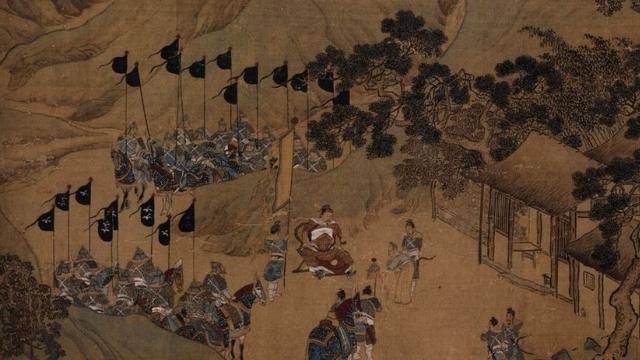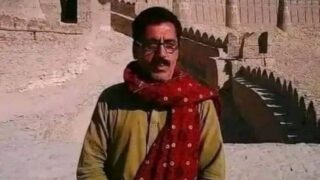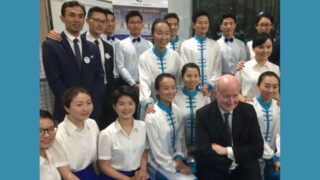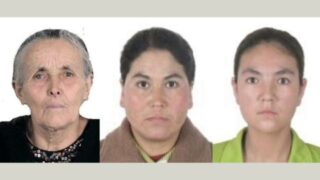Allegedly, illegal religion is infiltrated into Guangxi from Vietnam. In fact, folk religion is also targeted as “superstition.”
by Liang Changpu


In November 2021, Bitter Winter reported on a crackdown targeting religious infiltration from Vietnam in Ningming county, Guangxi Zhuang Autonomous Region. Ningming county is placed under the jurisdiction of the prefecture-level city of Chongzuo. To the north of Ningming county lies Napo County, which has the longest land border with Vietnam. To the south is the coastal prefecture-level city of Fangchenggang.
While Ningming county has a significant presence of the ethnic minority Mien (recognized by the CCP but under the old derogatory name Yao, meaning “savages”), Napo County is home to large communities of another minority, the Tai-speaking Zhuang. Fangchenggang’s population is 40% Zhuang.
The whole area has witnessed a social experiment of forcible relocation of villagers to specially designated sites and “model” settlements with tighter control, under the pretext of “poverty alleviation.” Economic results are controversial, and many villagers are unhappy about relocation. As it often happens, many look for comfort in non-government-approved religion.
Chongzuo city has issued a document called “Opinions on Strengthening the Prevention and Handling of Anti-Xie-Jiao Work in Relocation Sites for Poverty Alleviation.” It is an interesting text, which shows that one of the results of the relocation policy has been a revival of “illegal” forms of religion. As readers of Bitter Winter know, xie jiao , sometimes translated as “cults,” indicates teachings and groups the authorities regard as “heterodox” and prohibit.
Villagers in the “relocation sites” and in Napo County, where the border police is conducting a large operation against alleged infiltration of illegal religion from Vietnam, however, reported to Bitter Winter that, as it is often the case, the notion of xie jiao is interpreted extensively.
We have been told that religious movements who worship in different ways the divinized folk hero Nong Zhigao have also been harassed and advised to keep a lower profile. Nong Zhigao was a king who in the 11th century fought for Zhuang independence against both Vietnam and China. His worship is largely tolerated in Vietnam but was always looked at with suspicion by Chinese authorities as potentially fueling Zhuang separatism.


After the end of the Cultural Revolution, local academics and CCP officers in Guangxi argued that Nong Zhigao was a genuine popular hero who fought against the rich and protected the villagers, and his worship should be allowed (although, at the same time, the Chinese generals of the Song dynasty who mercilessly crushed Nong’s dream of independence are also honored).
There are also syncretistic Zhuang movements that combine the worship of Nong Zhigao with other religious themes. While the CCP certainly understands that a large-scale attack against the figure of Nong Zhigao would create unrest among the Zhuang, President Xi Jinping’s continuous calls for more control on religion and crackdown on “superstition” also affect century-old folk religious practices.









